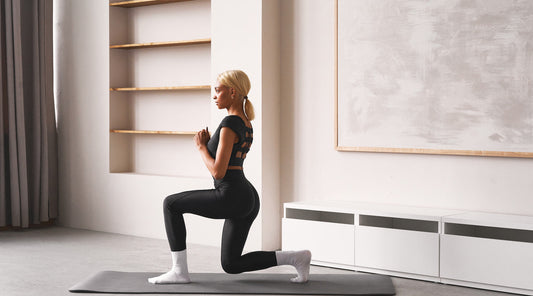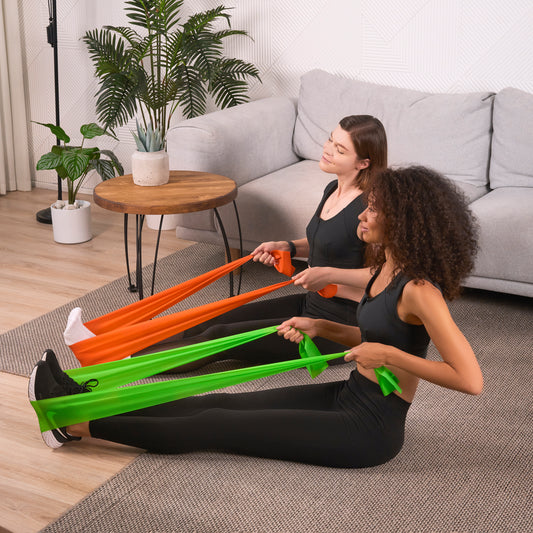The mind-body connection may be far more powerful than we can fully comprehend. You’ve likely felt the direct impact of aches and pains on your mood, but even subtler functions (or rather, dysfunctions) in your body can also have a profound influence on your thoughts, feelings, and overall sense of self.
One way you can manipulate your own mood is by simply practicing good posture. While some have claimed that slouching is no big deal, it’s hard to ignore the mounting research that reveals strong links between posture and mental health. Most significantly, poor posture is often associated with higher stress levels, lower self-esteem, increased fatigue, and symptoms of depression.
Below, we dig deeper into how posture affects mental well-being and what you can do to improve your posture and, ultimately, your mood.
Understanding the Link Between Posture and Mental Health
Your physical and mental state are interlinked. Have you ever noticed how your posture changes if you’re tired or upset? You may start to slump, almost as a way to hide into yourself. Likewise, a hunched posture can alter your mood, mental capacity, and even self-perception.
Can Posture Affect Mental Health?
The way you hold yourself is not just a matter of aesthetics — it can also impact your mental health. There is evidence that poor posture is related to:
- Increased stress and anxiety
- Lowered confidence and self-esteem
- Reduced energy levels
- Feelings of sadness and symptoms of depression
This can lead to a negative feedback loop. Poor posture can make you feel worse, which in turn can cause poor posture. So, why does this happen?

How Posture Influences Your Emotional State
Researchers continue to try to unravel the myriad complexities of the mind-body connection. When it comes to posture, many of us focus on how it can affect our musculoskeletal health, including chronic neck, shoulder, and back pain (1).
Physical aches and pain of any kind undoubtedly affects your emotional state. But there are other factors at play, like how posture can influence your hormones, particularly testosterone and cortisol. An upright posture has a small impact on testosterone — an important hormone for both men and women when it comes to maintaining bone density and balancing your mood. Good posture can also decrease cortisol levels, which helps to reduce fatigue and increase feelings of well-being (2).
How Slouching Can Increase Stress and Anxiety
We could list a whole slew of studies showing the correlation between a slumped posture and higher levels of stress and anxiety. Many point out the links between posture and muscular and nervous system functions, which both can influence emotional responses. Here’s a few studies that stand out:
- From 2015: Participants who held an upright posture “reported higher self-esteem, more arousal, better mood, and lower fear, compared to slumped participants” (3).
- From 2016: An upright posture boosted mood and reduced anxiety and fatigue in participants with mild to moderate depression (4).
- From 2022: Changes in posture were found to impact the cardiovascular and autonomic nervous systems. Researchers concluded that posture correction may help lower the risk of chronic diseases and improve chronic stress (5).
How Poor Posture Can Lower Confidence and Self-Esteem
As poor posture causes physical changes (in the muscles, hormones, and nerves), it can also alter the way you see yourself. Here’s another study to consider: At San Francisco State University, 86% of students reported recalling negative emotions and experiences when in a slumped position, while 87% found it easier to remember positive memories when sitting upright (6).
Similar research has discovered that good posture can make you feel and look more confident (7). Simply put, we often associate slouching as a position of sadness or defeat and we may internalize that, taking on those emotions when our posture suffers.
Tips for Improving Posture to Boost Mental Well-Being
Can improving your posture really make you feel better? According to the studies mentioned above (along with many others), there’s a good chance it can. Not only will you physically feel healthier — including reduced pain, improved digestion, and increased mobility — you’ll also feel lighter, less anxious, and more confident. Just try it. Draw your shoulders back and down and open your chest. Do you feel a little bolder? The effect can be instantaneous.
Implementing a few exercises and small lifestyle changes into your daily routine can go a long way in improving your posture, reducing stress, enhancing your mood, and even boosting your confidence and productivity. Here are a few ways to get started.
Simple Daily Exercises for Better Posture and Mental Health
We all know it, but it bears repeating: Daily movement is key for your physical, emotional, and mental well-being. This doesn’t mean you need to become a bodybuilder or run five miles every day. Even a 10-minute stretch break during a busy day can help reduce stress and discomfort.
Not sure where to start? Try these 9 exercises to improve your posture, including:
- Child’s pose
- Forward fold
- Cat cow
- Goalpost squeeze
- High plank
- Side plank
- Pigeon pose
- Cobra pose
- Chest opener
Also, try to incorporate a few stretches and deep breaths into your morning routine — this is an excellent way to start your day.
The Role of Supportive Accessories in Maintaining Healthy Posture
Along with building strong daily habits to improve posture, you can get a little extra help with a posture correcting bra. Effective posture bras help bring your spine into its optimal alignment while helping to correct muscular imbalances in the neck, shoulders, chest, and back.
Regularly wearing a posture corrector can help you build better body awareness so that you’ll more naturally maintain good posture throughout the day.

How the Etalon Posture Correcting Bra Helps Improve Mental Well-Being
The Etalon posture bra works by drawing the shoulder blades together and opening the chest to prevent you from slouching. This gentle action allows you to maintain good posture, whether you’re spending hours at your desk or on your feet.
GET YOUR ETALON POSTURE BRA 2.0
As discussed above, there’s a slew of research to support the idea that good posture is associated with improved mental and emotional health. This has to do with subtle changes in your body on a muscular, neural, and hormonal level, as well as our own perceptions of what a happy and confident person looks like — that is, they sit and stand with good posture.
SOURCES:
- “The global epidemic of low back pain.” The Lancet Rheumatology. (2023). https://www.thelancet.com/journals/lanrhe/article/PIIS2665-9913(23)00133-9/fulltext
- “Standing tall and standing wide: Body positions have effects on how people feel.” American Psychological Association. (2022). https://www.apa.org/pubs/highlights/spotlight/issue-239
- “Do slumped and upright postures affect stress responses? A randomized trial.” Health Psychology. (2015). https://pubmed.ncbi.nlm.nih.gov/25222091/
- “Upright posture improves affect and fatigue in people with depressive symptoms.” Journal of behavior therapy and experimental psychiatry. (2016). https://pubmed.ncbi.nlm.nih.gov/27494342/
- “Effects of trunk posture on cardiovascular and autonomic nervous systems: A pilot study.” Frontiers in Physiology. (2022). https://pmc.ncbi.nlm.nih.gov/articles/PMC9623330/
- “Good posture is important for physical and mental health.” San Francisco State University. (2017). https://news.sfsu.edu/archive/news-story/good-posture-important-physical-and-mental-health.html
- Journal of Psychophysiology. “The impact of pain on subsequent effort and cognitive performance.” (2022). https://www.researchgate.net/publication/354184586_The_impact_of_pain_on_subsequent_effort_and_cognitive_performance
Photo by Vitaly Gariev
FAQs
How does poor posture affect mental health and well-being?
Can improving posture help reduce feelings of stress and anxiety?
What are some exercises to correct posture and boost mental resilience?
Can a posture corrector help reduce anxiety and improve mood?
Trending
Try Etalon posture improvement products









